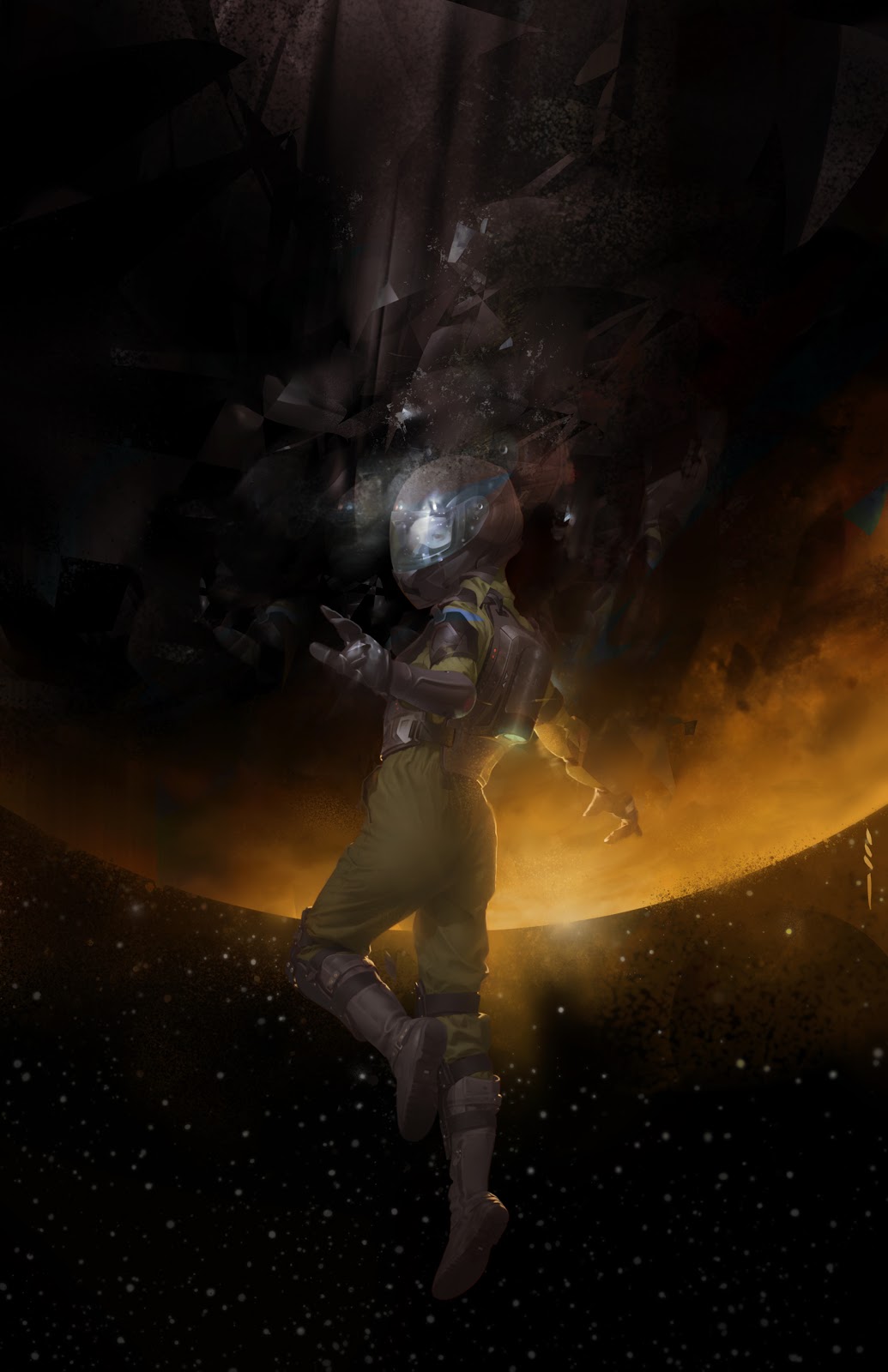Here are my notes on Buddies without Organs Episdoe #7 – The Fold. The episode itself, notes and all the rest can be found here.
Below are my notes on The Fold, Chapter 1. Might look a little like a transcript this time around because I really struggled to unfold this text and felt the need to stick closely to my notes. Enjoy?
One of the reasons I found this first chapter difficult on first look is that Deleuze wastes no time in demonstrating the breadth of his thought here. Immediately he calls the Baroque an “operative function” that endlessly produces folds, and says that rather than inventing anything, the Baroque entails folds coming from “the East, Greek, Roman, Romanesque, Gothic, [and] Classical folds.” (This description of the Baroque as something that contains what came before sounds similar to how one might describe postmodernism, though of course lacking the meta or self-referential aspect that really defines PM.) I don’t know enough about the Baroque in art and architecture to know whether Deleuze is accurate here (or if it’s even perhaps a controversial statement), but he’s setting the boundaries of discussion, and they are seemingly endless – as he says “The Baroque fold unfurls all the way to infinity.”
It’s worth taking this on-board as something of a warning. Ahead of you is a dense and dizzying read. And that makes sense when you consider that this book is in conversation with the work of Leibniz, who is the sort of genius that developed ideas and theories more than 300 years ago that are still relevant to philosophy, mathematics, and computing today.
After establishing the boundaries (or lack thereof), Deleuze moves on to a metaphor of a sort of Baroque House made up of two floors. The lower floor (the Pleats of Matter) has windows (which represent the inputs of the five senses), but the upper floor (the Folds of the Soul) is closed off, though there is movement and communication between the floors.
The lower floor is where matter is amassed and organised. The upper floor is where “the soul sings of the glory of God inasmuch as it follows its own folds, but without succeeding in entirely developing them, since ‘this communication stretches out indefinitely.'” The notion of a soul needing to follow its own folds is reminiscent to me of the lines of flight that we discussed previously with On the Superiority of Anglo-American Literature. And in particular the part about the process stretching out indefinitely links to the idea of becoming – that being a process which is (or should be) ongoing.
So already I’m making connections, I’m folding this chapter in with some of the other works we’ve discussed in an effort to grasp on to some sort of meaning. But I know I’m struggling when I can’t help but wonder exactly what Deleuze means by “matter” here. When he discusses the house, and the communication between the upper and lower levels, he could easily be discussing the human – the way the physical and the spiritual influence and interact with one another. But we’re also talking about Leibniz and mathematics, and so in the next paragraph Deleuze is talking about the curvilinear movement of the universe, because of course he is. But I think the important idea to take out of this section (where Deleuze is going from the Baroque House to an almost cosmic perspective) is summed up in a quote from Leibniz: “The division of the continuous must not be taken as of sand dividing into grains, but as that of a sheet of paper […] in folds, in such a way that an infinite number of folds can be produced, some smaller than others, but without the body ever dissolving into points or minima.” Later – particularly when we’re talking about monads – we could slip into a modern scientific mode of atomistic thinking, so I think we’ll be served well by keeping this in mind. Deleuze isn’t concerned with discrete atoms, he’s concerned with the folds within and between matter.
Deleuze says, “The unit of matter, the smallest element of the labyrinth is the fold.” And I like this idea; if you’re thinking about a labyrinth, the fold isn’t actually a part of the maze in the same way that the walls are, the fold is instead the relationship between the walls themselves. The fold is the smallest element of the labyrinth because it’s the metadata that defines the shape of the labyrinth. Perhaps as digital natives (or at least digitally naturalised, for us elder-Millennials) we’re in a better position to grasp the idea of the fold because we’re already intimately familiar with the relationship between the physical and the non with the way our digital lives are overlaid on and intersect with our physical lives – or the way they’re enfolded together.
Anyway, we’re moving into a section that pits organic matter against inorganic matter. Organic matter is defined by internal folds, while inorganic matter is worked upon by exterior forces. Here I can only guess that he’s talking about the development of organic matter – growth and change – because sadly we’re not immune to external forces, and your organic matter is going to find itself quite severely folded if you get hit by a truck, or slam your hand in a car door (sorry, Matt, but the example was right there). But still, it’s an important distinction to make – inorganic matter is worked on by wind, water, tools, chemical reactions, etc, but organic matter is a machine made up of self-replicating and self-perpetuating machines – that being cells.
(In another bit Deleuze also says that there’s no difference between organic and inorganic matter, so what the fuck do I know?)
On the distinction between the two types of matter, Deleuze says “Our mechanisms are in fact organized into parts that are not in themselves machines, while the organism is infinitely machines, a machine whose every part or piece is a machine […].” So, inorganic mechanisms can move between one level and the other only with external interference – it can be folded, but it cannot fold itself – whereas a living organism has an “internal destiny that makes it move from fold to fold, or that makes machines from machines all the way to infinity.” His use of “infinity” can’t really be read as literal, but rather potential. It also sounds more akin to how cancer cells operate then the bodies that host them.
I’d be interested to see how someone working in the space of Object-Oriented Ontology might respond to this section on organic vs inorganic matter, so if any listeners have recommendations or thoughts, please get in touch.
Anyway, Deleuze continues to develop this line of thinking, and posits that instead of unfolding its parts to infinity, organic matter unfolds according to the development of its species. He uses the example of the fly: “The first fly contains the seed of all flies to come, each being called in its turn to unfold its own parts at the right time.” And he also uses the example of the butterfly, which “is folded into the caterpillar that will soon unfold.” So he’s talking about living process – or plastic forces – as being the folds taking place within organic matter.
In the same paragraph – it’s a long one, and one that kept on grabbing me no matter how badly I wanted to move past it – he quotes Leibniz, saying “Each portion of matter may be conceived as a garden full of plants, and as a pond full of fish. But every branch of each plant, every member of each animal, and every drop of their liquid parts is in itself likewise a similar garden or pond.” I highlighted this because to me it sounds like a description of environmental systems right down to the level of microbial biomes, which is something we’re still coming to understand today. Leibniz was apparently a thinker outside of time.




